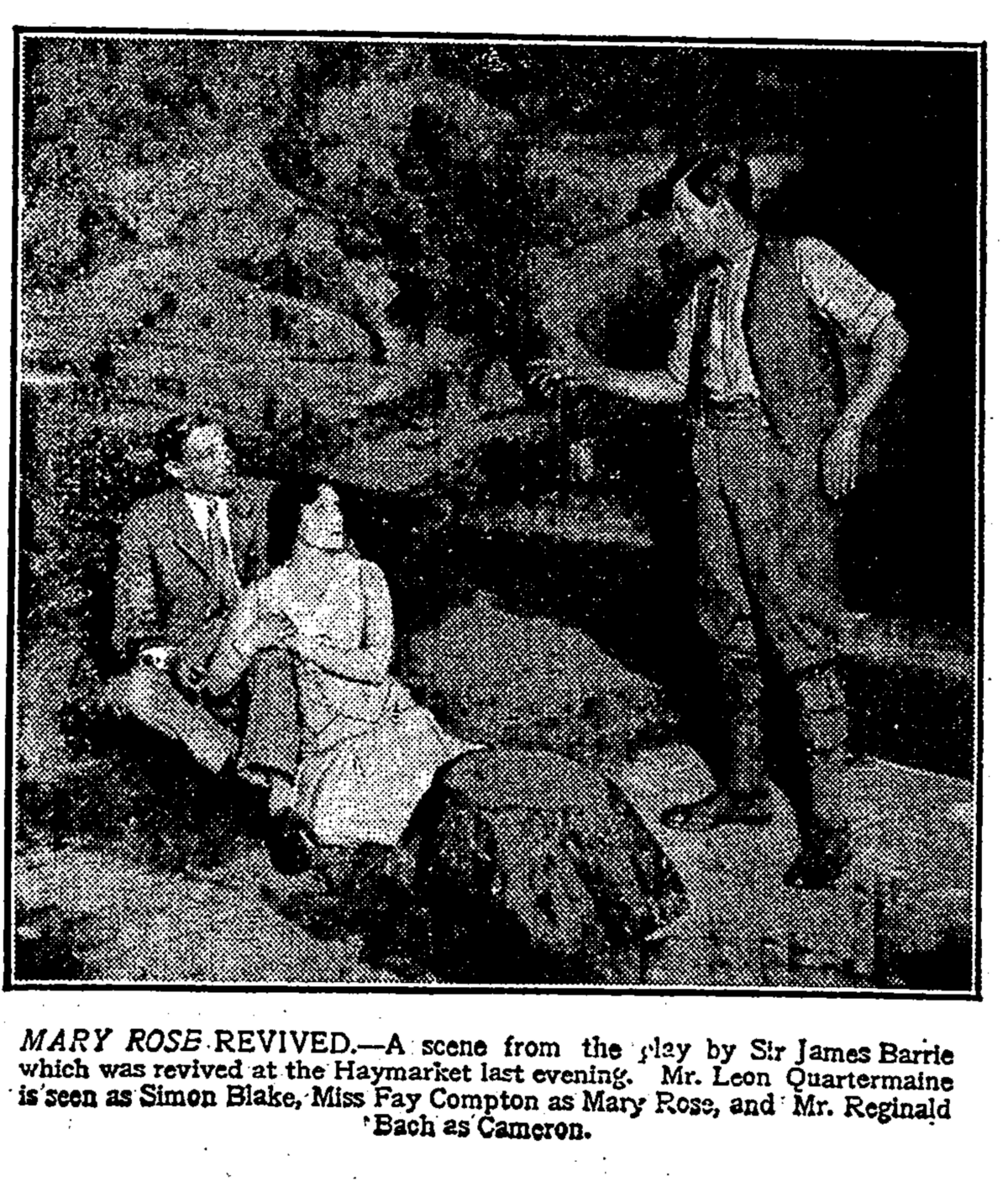The Times (22/Jan/1926) - Haymarket Theatre: Mary Rose
Details
- article: Haymarket Theatre: Mary Rose
- author(s):
- newspaper: The Times (22/Jan/1926)
- keywords: Mary Rose
Article
Haymarket Theatre: Mary Rose
HAYMARKET THEATRE
"MARY ROSE."
BY J.M. BARRIE
As with Mary Rose on the enchanted island, so time seems to stand still with Mary Rose's interpretess at the Haymarket, Miss Fay Compton. Indeed, we think she must even be younger, more of a girl, than when she first played the part. There is no need, however, to suspect some miraculous intervention of the Time Spirit. A more probable, if more prosaic, explanation is that the actress has now arrived at a complete identification of self with part. Whatever the cause, the result is an exquisitely beautiful thing. Barrie's conception is presented in the actress's performance inviolate and, indeed, intact. What a bit of good fortune for him and for us who look on!
That is the resultant impression one gets from the whole play, that it is a bit of good fortune that has befallen us. Never was the genius of Barrie more spontaneously or more tenderly exhibited than in Mary Rose. There is the homely, human touch (in the fireside squabble of the rival connoisseurs, pacified by the gentle intervention of the housewife); there is the dainty freshness of early and happy love in the scenes between Mary Rose and Simon; there is the "eery" atmosphere of the island-that-likes-to-be-visited; and there is a pathos almost too poignant for tears in the. return of Mary Rose, still young, to the parents and husband grown old, to say nothing of that first scene of the son cherishing yet half-shrinking from the mothers ghost a scene not only without compare in the contemporary theatre, but which sends you away not so much distressed as awed.
Not a false note is struck in the present cast. Besides Miss Fay Compton, there are Miss Jean Cadell and Mr. Norman Forbes in their old parts, excellent interpretations both. Mr. Leon Quartermaine succeeds Mr. Robert Loraine as the husband, and seems to us more at home than his predecessor but then Mr. Quartermaine is at home in everything, an actor with a sympathetic imagination for every one of his characters. We had thought, on the original production, that nothing could touch Mr. Thesiger's Highland gillie, until we saw Mr. Reginald Bach's. Mr. Frank Collier makes the clerical friend of the family a careful little bit of "composition," and Miss Hilda Trevelyan as the mother is every bit as sweet and gracious as was Miss Mary Jerrold, which is saying much. Altogether, a revival to be deeply grateful for.

